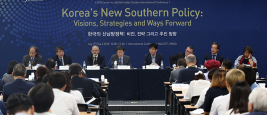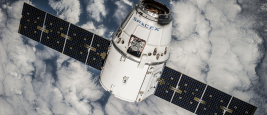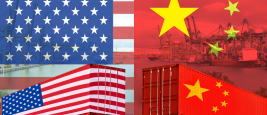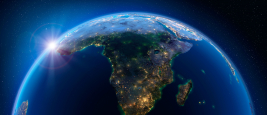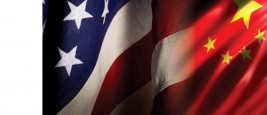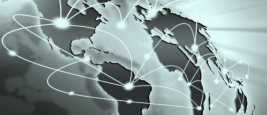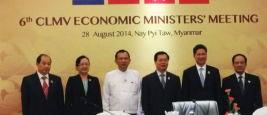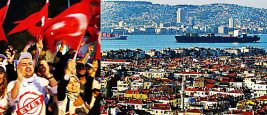Baden-Württemberg's economic and social structure offered good starting conditions for center-right parties from the beginning, which the Christian Democratic Union of Germany (CDU) initially knew how to use for itself. From 1953 to 2011 the Prime Minister belonged to the CDU. In 2011 the...

Economy

Economic issues are covereded from a political economy perspective: changes in the global economic system, governance and institutions, dynamics and trends in different economic zones (USA, Russia, China, Emerging ...). European problems are given special attention.
Associate Director of Ifri's Geoeconomics and Geofinance initiative
Diversification is a key tenet of South Korea’s New Southern Policy (NSP). In the economic sphere, however, the need for diversification is apparently less pressing as, unlike what is observed in the diplomatic and security domains, Korea’s economic partnerships are less unbalanced and are not...
What are the next geopolitical challenges of the century? The global pandemic has altered the equilibrium between Asia and the West and sealed the rift between China and the United States, accentuating the world’s shift towards the East. On this polarized chessboard, two fault lines converge:...
During his term in office (2012-2020), Prime Minister Shinzo Abe sought to demonstrate Japan's high level of interest in Africa, including by pledging a total of $ 60 billion in financial support at the 2013 and 2016 Tokyo International Conference on African Development (TICAD) summits and...
The COVID-19 crisis has made clear the importance of resilient supply chains and effective economic security.
At the end of year 2020, the European space sector finds itself at a crossroads between challenges and opportunities. While the 2019 European Space Agency (ESA) Ministerial Conference marked a progression in terms of budgets, a sign of renewed space ambitions, the technological and...
Despite the posturing, both the United Kingdom and the European Union are trying to reach a deal. However, London’s cliffedge strategy and Brussels’ control of the agenda and progress of the negotiations could result in an “any deal is better than no deal”.
The US space sector, comprised of its government organizations and its commercial industry, is leading the revolution in space, often called "new space".
One of Donald Trump’s campaign promises in 2016 was to end China’s “cheating” on trade and to reduce America's trade deficit by imposing significant tariffs on U.S. imports of Chinese products. This study draws up a first assessment of his policy - and of the "trade war" which stemmed from it....
Affordable and reliable electricity access is a prerequisite for the economic development of sub-Saharan Africa.
China, the United States, and the Rise of Geoeconomics Conference with Robert Blackwill, Henry A. Kissinger senior fellow for U.S. foreign policy, the Council on Foreign Relations (CFR)
Beijing flexes its economic muscle with frequent success in pursuit of Chinese geopolitical aims. By contrast, the United States has largely forgotten the historic role of geoeconomics in American foreign policy. The United States must come to grips with the reality that the...
Lunch-debate with Robert Blackwill, Henry A. Kissinger senior fellow for U.S. foreign policy, Council on Foreign Relations (CFR)
Meeting chaired by Thierry de Montbrial, Executive Chairman, Ifri.
By invitation only.
Working language: English.
Internet: a moving governance
A conférence with Fadi CHEHADÉ, President and Chief Executive Officer of the ICANN (Internet Corporation for Assigned Names and Numbers).
Debating Abenomics : Success or Failure Ahead?
What lies ahead for the ambitious economic policy that Japan's Prime Minister Shinzo Abe launched in 2013? Will the second and third arrows of Abenomics hit their targets? Can Abenomics be considered as a model or inspiration for European economies?
...
The latecomers of Southeast Asia: the CLMV countries and regional integration
Séminaire fermé / sur invitation uniquement
...
Reforming Vietnam’s Economy : The Role of New Strategic Partners
Vietnam, as one of the parties negotiating the TPP (Trans-Pacific Partnership), is expecting a signature of the mega free trade deal for the first half of 2015. The agreeement will represent a huge opportunity for the Vietnamese economy but will also trigger important...
Breakfast with Laurence Boone, Advisor on Economics and Finance to the President of France
Economic outlook for France and the European Union
"New Turkey" Economic and geopolitical challenges
During the last eleven years, as its accession process to the European Union did not move much forward, Turkey, under the lead of Prime Minister Recep Tayyip Erdoğan, asserted itself as a regional power. It counts today 77 million inhabitants and reports a GDP of 820 billion USD (2013)...
2012, year of all dangers?
Luncheon debatte dedicated to Ifri's corporate members, by invitation only.
...
The Second Brazil Business Summit
The Economist Conferences organizes on July 7th 2011 "The Second Brazil Business Summit", an opportunity to review developments in the Brazilian market following the 2010 presidential elections.
Ifri is a supporting...





